
Borne and Bred
Linda Va’aelua
9 May - 5 Jul, 2025
Summary
Borne and Bred delves into Linda Va’aelua’s experience as being a first generation New Zealand born Samoan raised in Tāmaki Makaurau. Her work reflects the complex negotiation between belonging to Aotearoa and maintaining ties to her Samoan heritage. Va’aelua’s concerns centre on that of many migrant communities, where parents and grandparents worked tirelessly in low-income, labour-intensive jobs, seeking a “better life” and education for their children. Through the reinterpretation of traditional Samoan motifs using repurposed, and found materials present in Aotearoa, she challenges notions of value, identity, and cultural legacy, while celebrating the resilience and labour of Pasifika communities in New Zealand.
As a Samoan born in New Zealand my way of seeing is a little different to that of my family who have grown up in Samoa; it isn’t greater, and it isn’t less than. I’m a proud New Zealand Samoan, Borne and Bred.
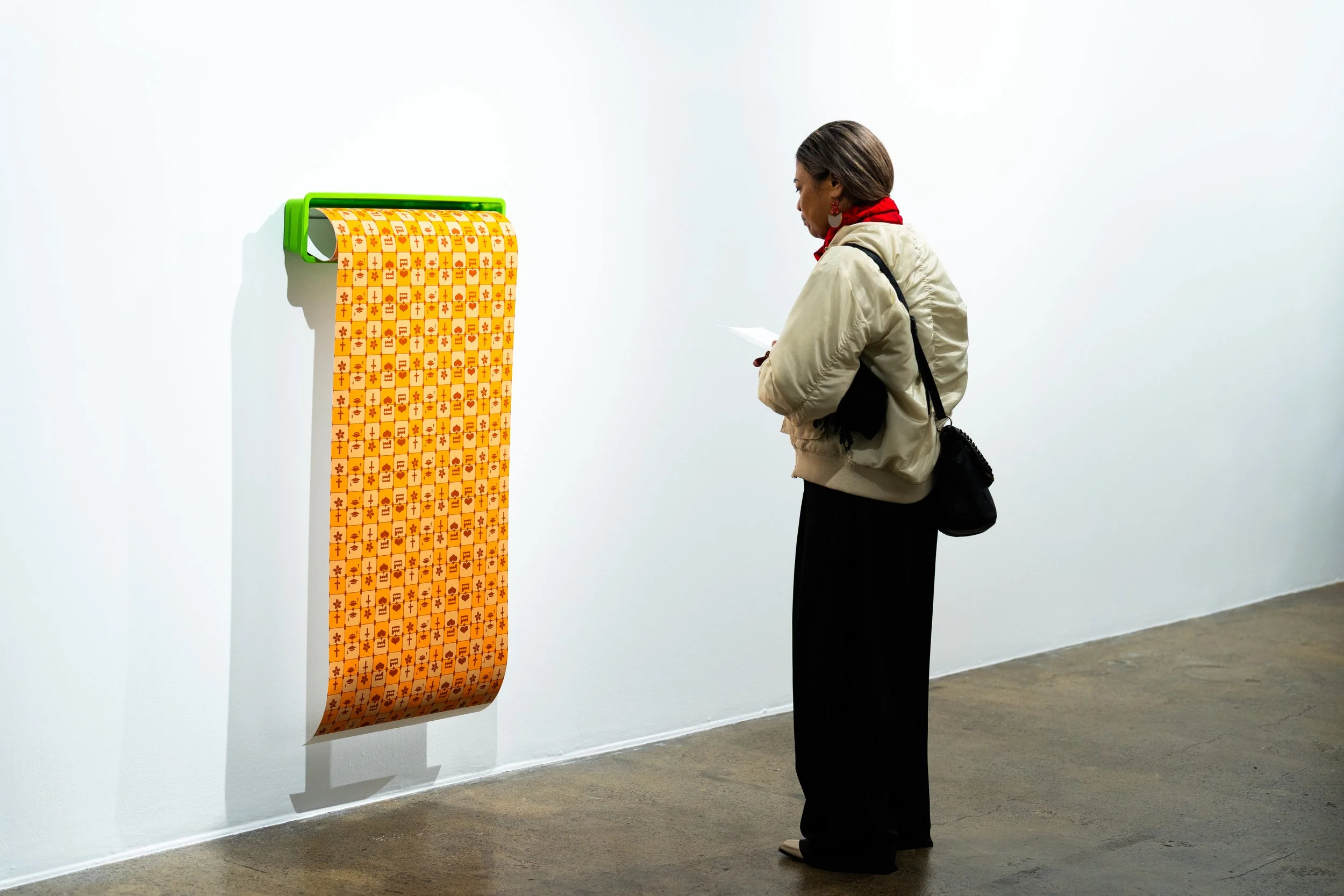
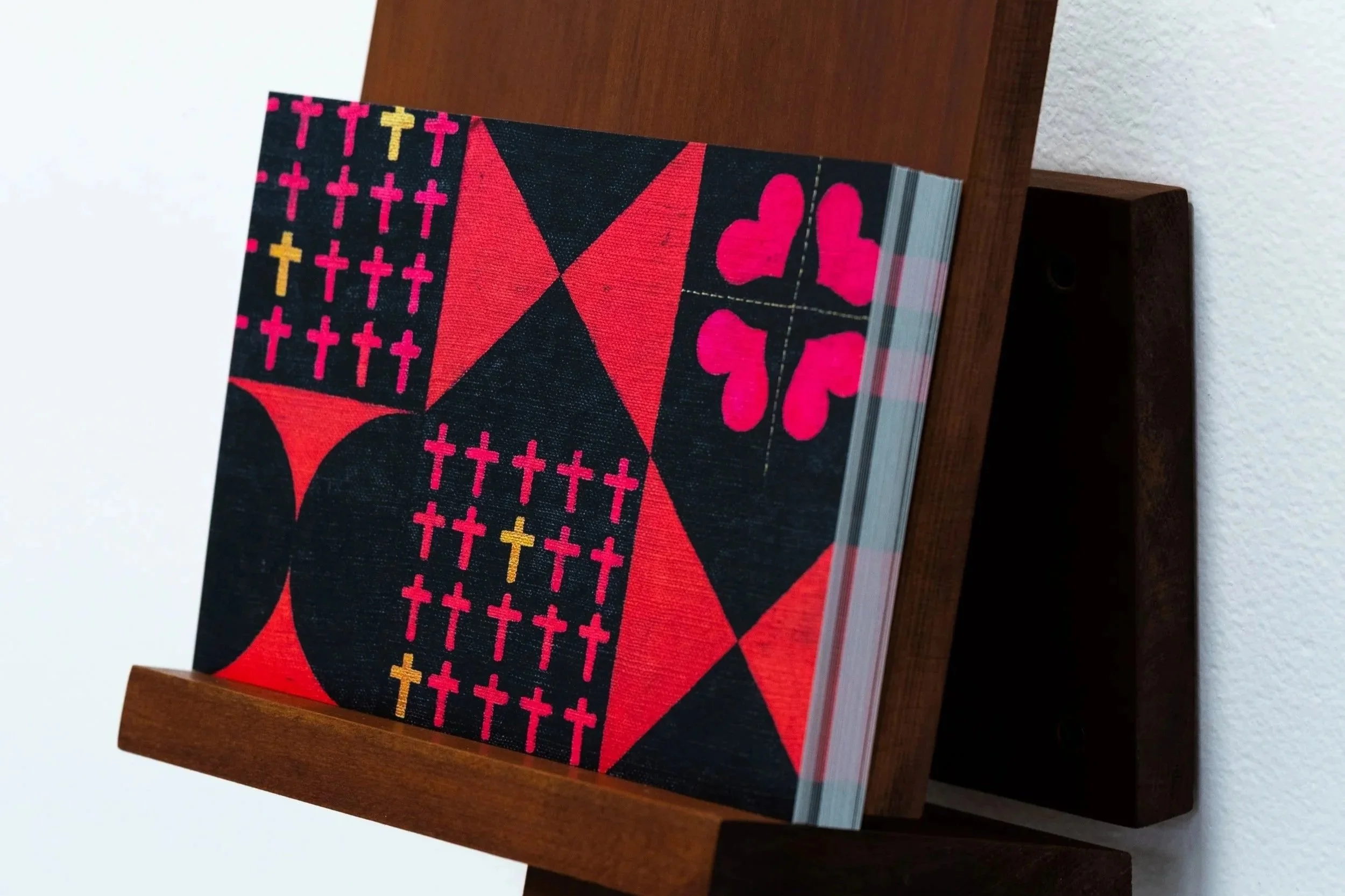
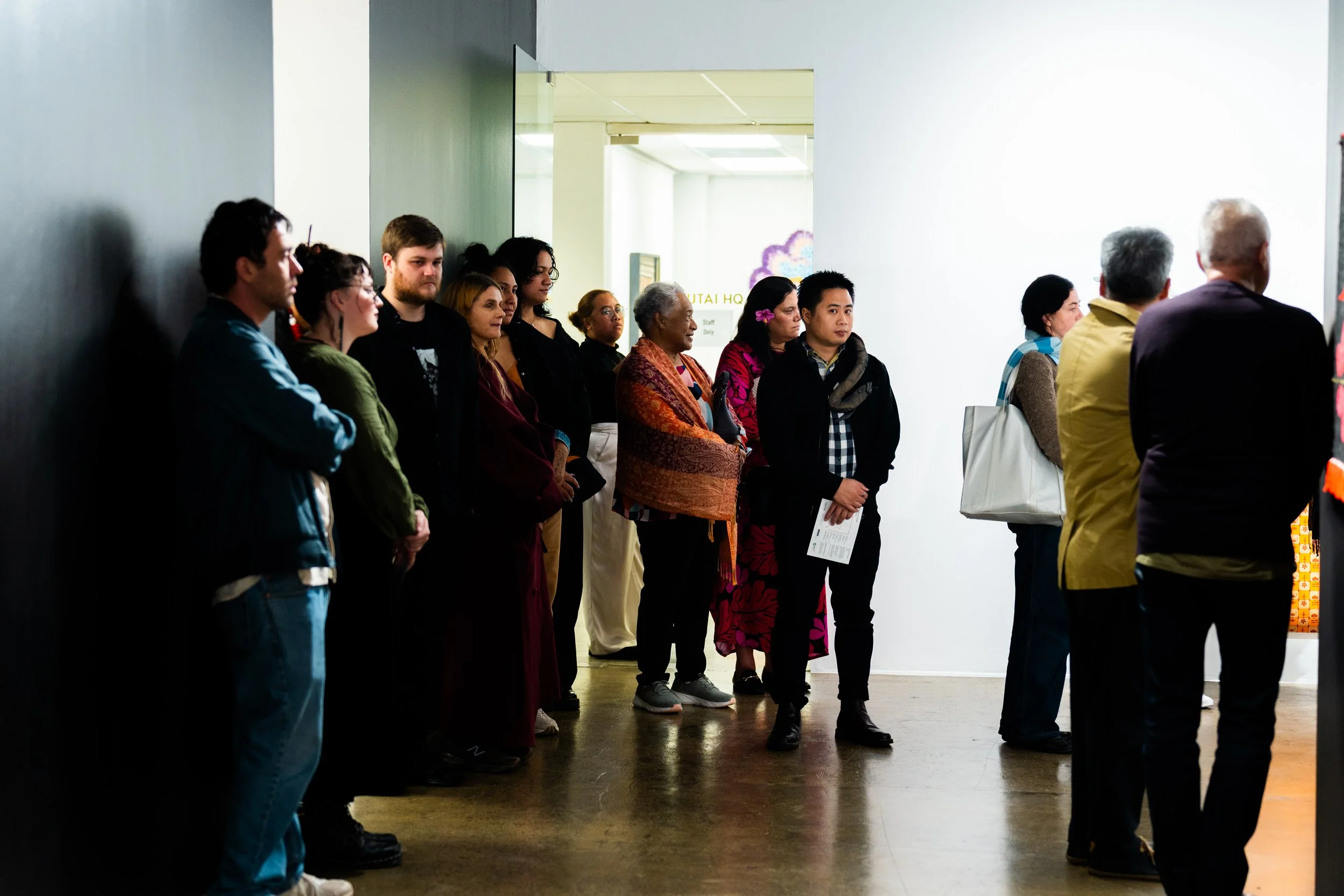

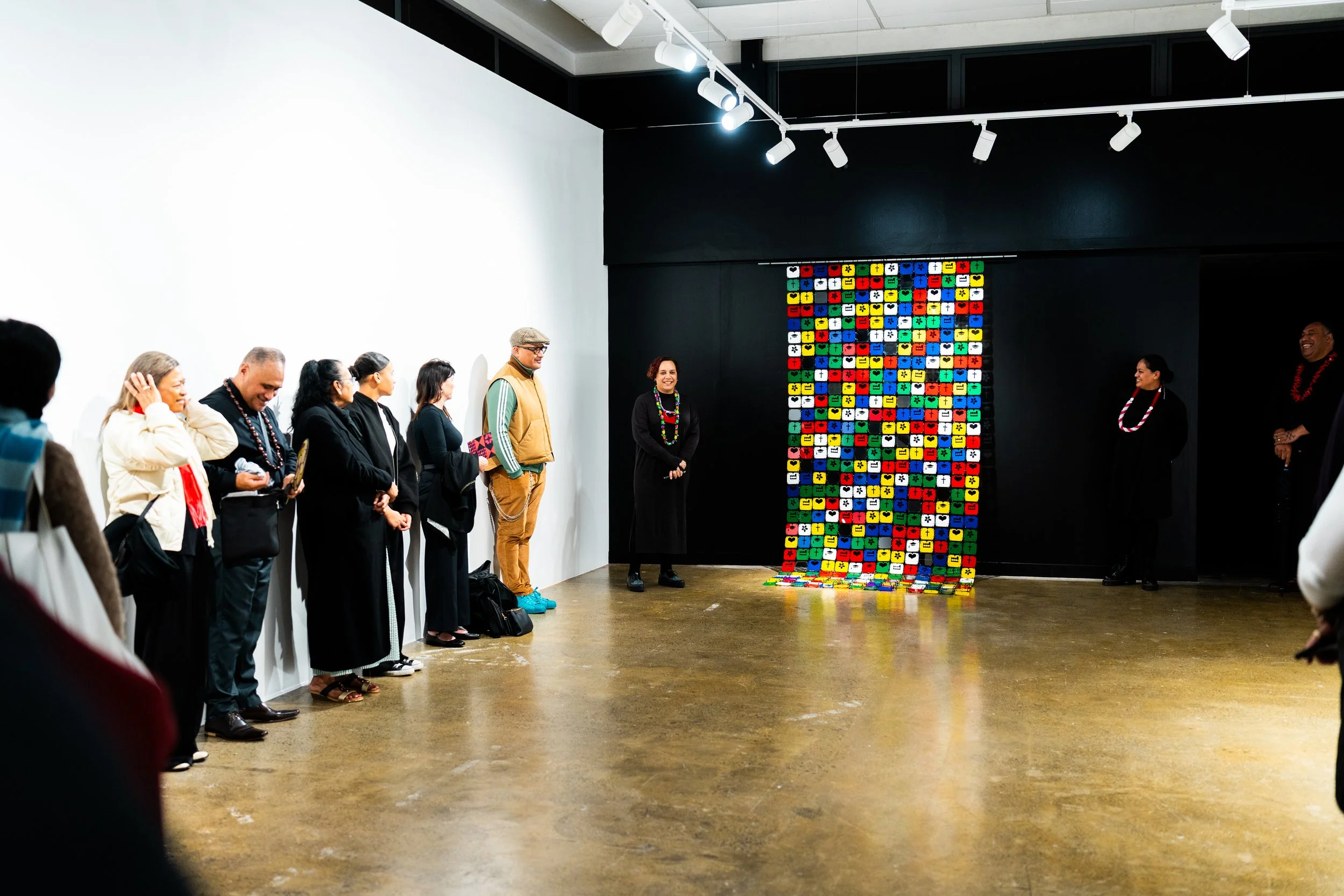
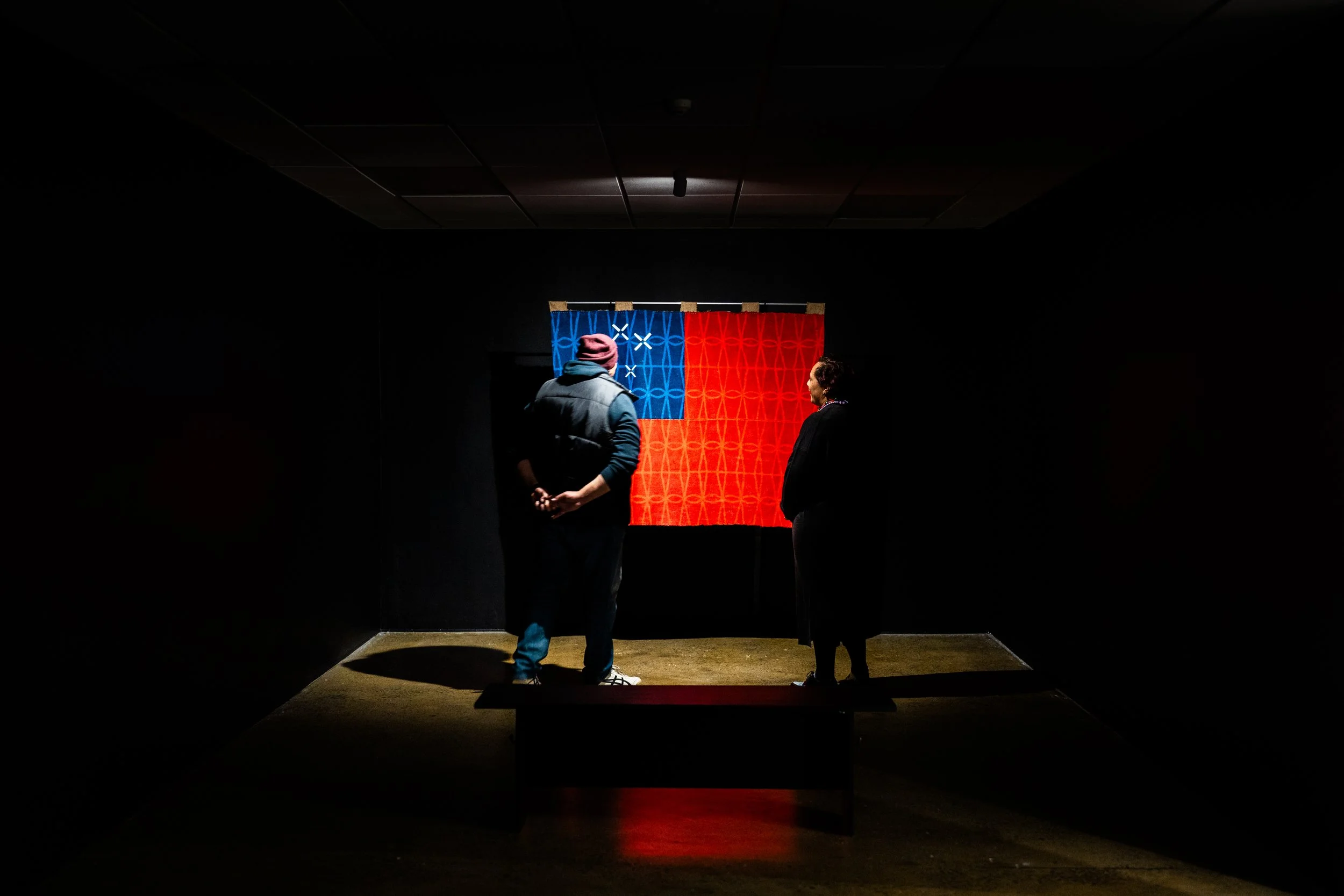

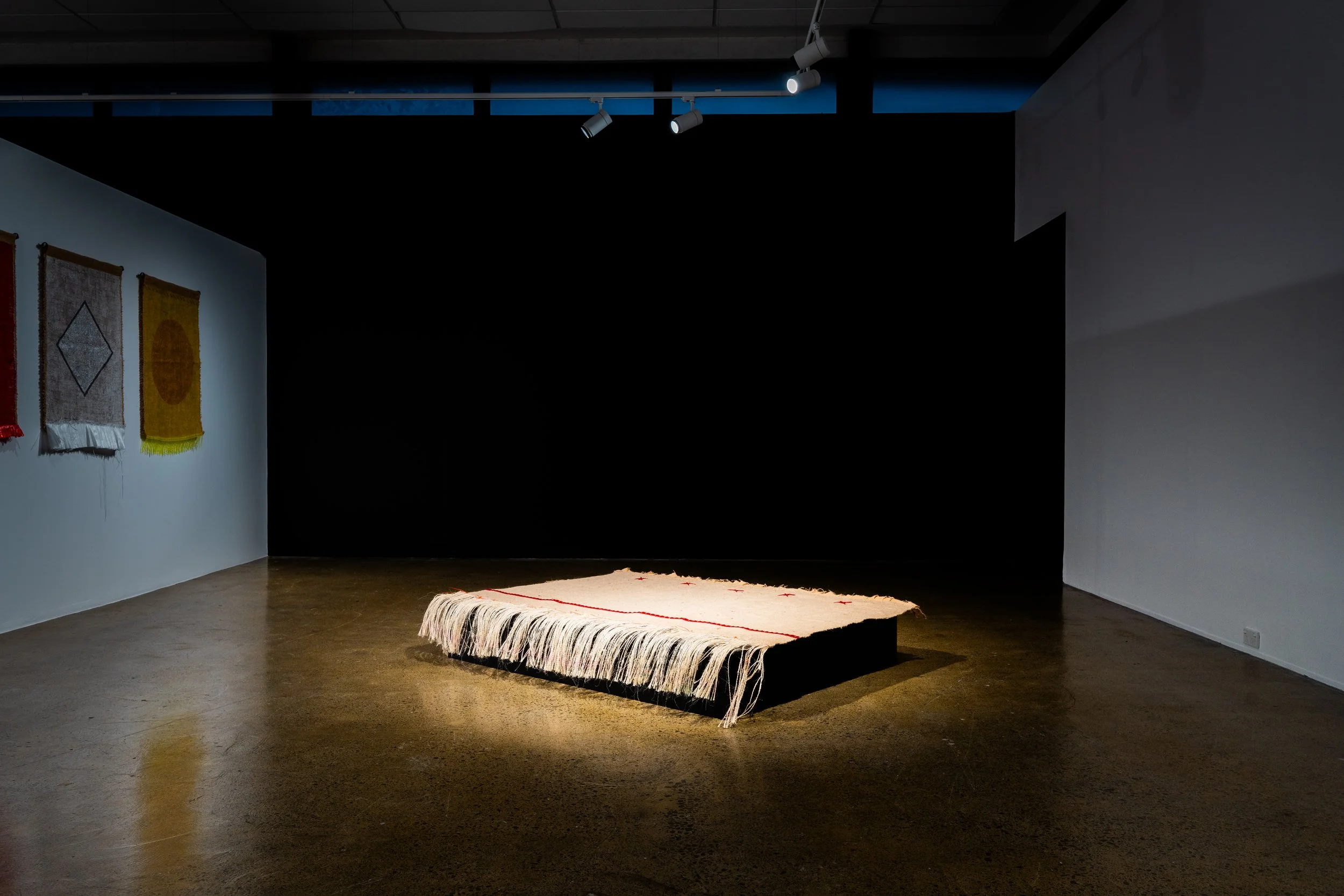
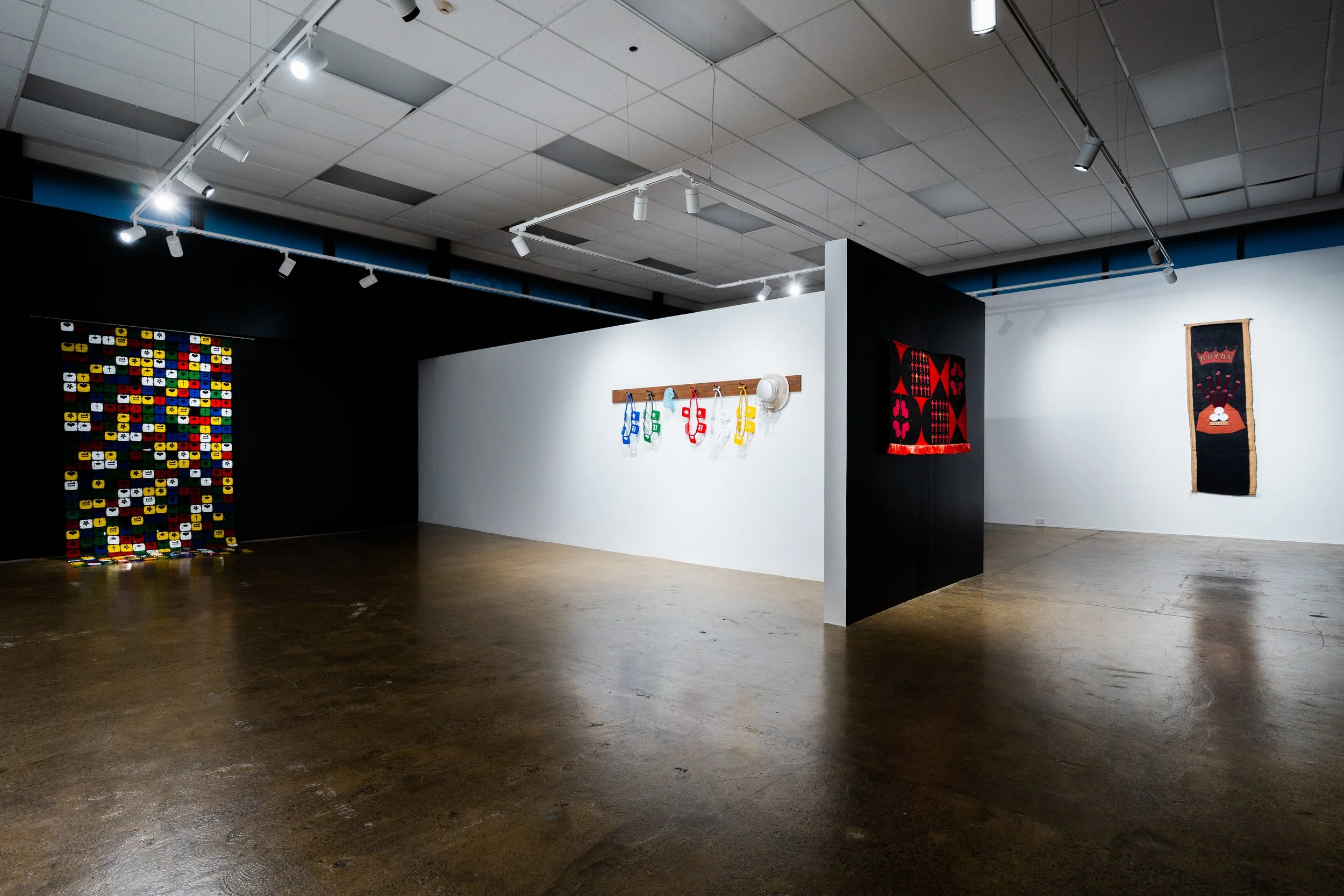
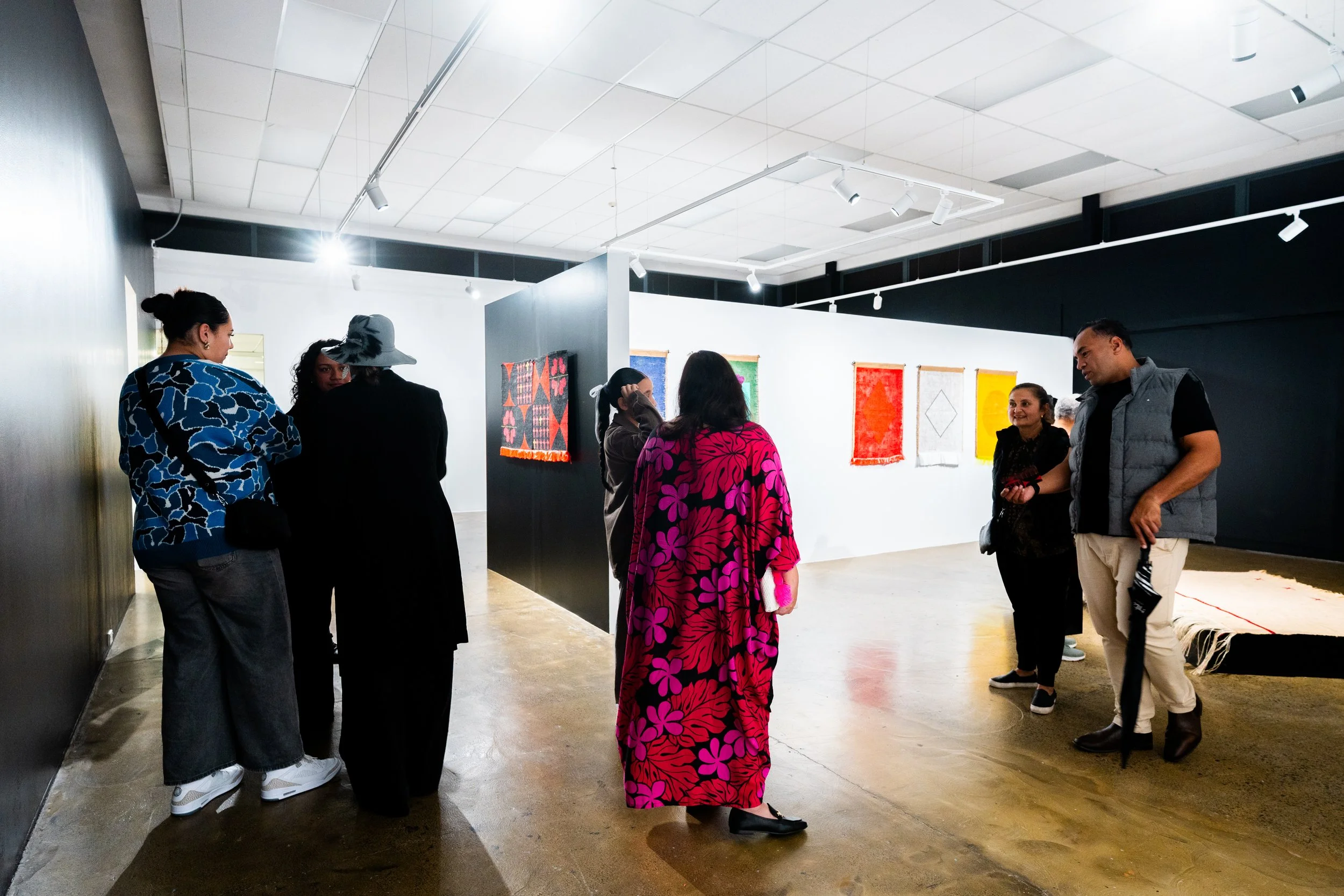
Borne and Bred
An essay response by Siliga David Setoga
Ia fai so’u aoga mo oe Iesu e,
Ia fai so’u aoga mo oe si o’u Aiga e,
Ia fai so’u aoga mo oe si o’u Nu’u e.
May I be of service to you my Lord,
May I be of service to you my family,
May I be of service to you my village.
-
Faith, family and village are the three pillars that governs the Samoan psyche. It is where our identity hovers and where it locates itself. It may bounce around and struggle to find its place, but it will settle in the vicinity once it finds its home…this may take a lifetime.
O le Aitaumalele - those who serve from afar and overseas - it is our way of binding, weaving and entangling ourselves to our pillars.
And We Came To This Land Of Plenty -
And We Came To This Land Of Hope -
And We Came To This Land Of Good Times -
And We Came To This Land Of Love.This chorus by OMC captures an attitude widely held by Polynesian migrants. Whether one was sent, or opted to leave their home shores, there is an intrinsic understanding that we left to seek greater opportunities, to search for better, to progress, build and grow.
Leaving home for Aotearoa the expectation was to come to work, we’re not here on holiday. Work also meant that inherited generational knowledge and expertise of living off the sea, working the land, understanding the environment and elements, guilds, arts and crafts, cultural and traditional knowledge took a back seat now because there was no money in it, not dissimilar to the argument to dissuade us not to follow a creative career path.
The dichotomy here is, we chose to leave home, for the love of home, that we may be able to serve home, only to be isolated from home, sometimes questioning our place in search of home.
Working hard for home only for home to not recognise us.
Work they did, never forgetting where they came from and who they came from and why they were here, progress was the only outcome. If it didn’t lift and praise the Lord, if it didn’t help our Aiga, if it didn’t contribute to our Village, it didn’t matter…they did it while raising us, their children.
Very rarely did I see any of my family members or people we knew - whether through church or family friends - ever not work, unless they were caring for family members, or couldn’t due to health conditions. There was no choice, if you were well enough, you were well enough to work. On the spectrum of insults, one of the worst labels in the Samoan context is to be branded ‘Paie’ which means lazy. Laziness is akin to being useless, having no purpose, you came all this way to Netflix and chill? You know Island gossip travels faster than social media, and this was back in the olden days prior to the internet.
Being away from home we gravitate towards our meeting places, communal spaces and common traces, so collectively we’d have a portal home, share stories, laugh, cry, get upset with, build and relieve tension together.
“E sisi le pola a le Samoa ma fa’asaga I lo ta nu’u moni”, Living in foreign lands when we wake, we draw the curtains and face home in remembrance. We reference Psalms 137 “If I forget thee, O Jerusalem, let my right hand forget [her skill]. If I do not remember thee, let my tongue cleave to the roof of my mouth; if I prefer not Jerusalem above my chief joy.” Sure, it’s a tad bit dramatic, after all we chose to come here but the sentiments remain, Samoa pe galo oe afea? How can I ever forget you Samoa?
But then again how could I forget when my mother would remind me “I walked x miles to school, no shoes, no breakfast, if you managed to get a piece of breadfruit you were grateful, I’d go to the classroom to complete my homework at lunch to hide the fact that I didn’t have any”. I’m sure we’ve all got our own versions.
In Samoa it is a customary practice to invite people who are walking past your house inside to have something to eat, not in a cringey stranger danger kind of way, as they’d usually be your fellow villagers. It’s our love language and how we care for each other. It is also the notion of whatever I have not matter how meager, it becomes a banquet when it’s shared “e tupu mea avea, ae e le tupu mea e teu pea” as my Grandmother would say, loosely translated means: whatever we share and give to others will grow and flourish in abundance, while the things we selfishly keep for ourselves will wither and die. I remember popping into friends and relatives’ houses and Mama or Aunty would not let you leave without having something to eat first, to the point of standing over you, me on the other hand having to put aside my politeness for my own health and safety, accepting their hospitality.
Borne and Bred for me conjures up so many emotions, triggers stories and memories - the most dominant of course is one of homage and a huge sentiment of honouring, and thanksgiving. I am welcomed into the conversation like a loved family member returning home after a long absence, I am reminiscing seeing the familiar, saying to myself I remember that, that’s right, laughing knowing that time and distance gives me the privilege of doing so, but at the time it was fraught with tears and anguish. There are new conversations too, like family members who came into the fold after I had left, I am getting to know them, I am open but still a little protective. Amid paying my dues and tribute, acknowledging my privilege and my blessed reality, Va’aelua also inadvertently challenges us to have those new and uncomfortable conversations with ourselves, because no progress can be had without sacrifice. How do I move forward without undoing all their hard work?
A ta’ape le fua manusina, ia lele le Gogo ma si ana I’a – when the flock of Tern (Gogo) disperse back to their nests in the forest, after the days catch at sea may each Gogo fly back with their catch full to feed their families. We walk backwards into the future, with our eyes firmly fixed on our past facing our ancestors who are in front of us. They await our return, occasionally they knock and whisper, I feel like I’ve been here before, but I can’t be sure. Ritual? Maybe, it feels strangely familiar but unsure, what it most definitely is, is home.
